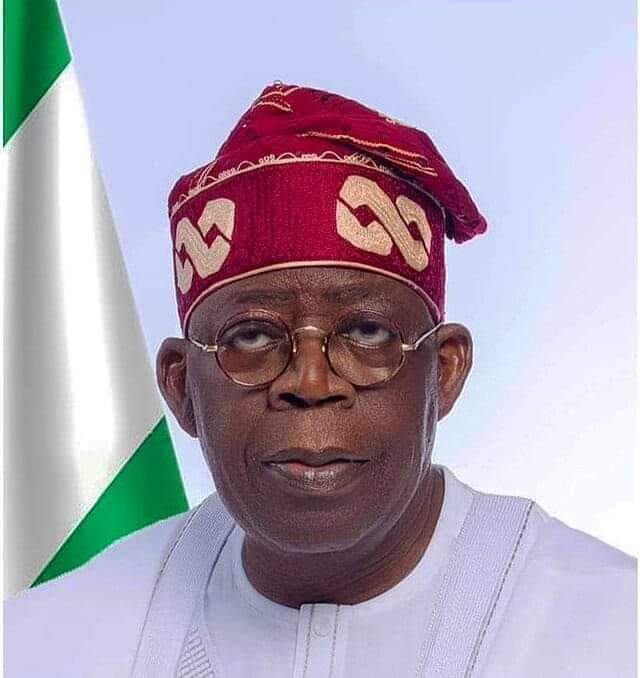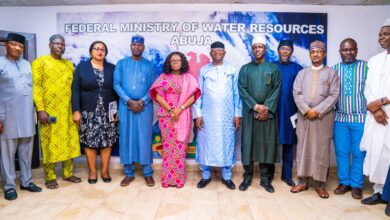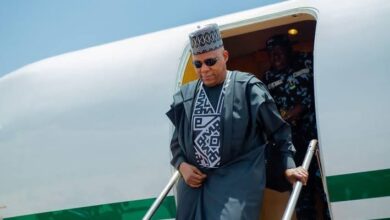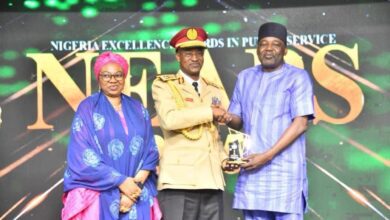FG Queries Foreign Agencies’ Data On Nation’s Economy

The Federal Government has queried the methodology used by foreign agencies to generate economic data for Nigeria.
Minister of Budget and Economic Planning, Abubakar Bagudu expressed this on Tuesday during the launch of the “African Youth Employment Clock” a project that is executed by Master Card in partnership with World Data Lab, and ministry of budget and economic planning.
He said the country must be involved in the collation of economic data so as to fully understand how data is collated and tell the world about her own industrious citizens.
According to him, foreign agencies don’t tell good stories about the nation’s hard-working citizens when collating their economic data.
“Sometimes the way data is generated, some officials of international bodies miss out on vital things. And I gave an example; credit rating agencies’, he said.
The Minister, however, appreciated Master Card Foundation and the World Data Lab for their contributions in helping the government reduce unemployment in the country and the African continent.
“We appreciate what Master card foundation is doing, the ministry of budget and economic planning engaged with Master card foundation. We registered them and we have been following what they’ve been doing and all the laudable programmes they’ve been doing to create employment within Nigeria and the wider African continent. And even this African youth clock that is been launched here today.
“What Master card foundation and World Data Lab are doing are helpful to our strategy in terms of we moving fast. And many policies have been introduced to support that dream of ensuring that our young ones have employment opportunities. And by employment opportunities; I mean both employment and ability to be able to employ others”, he said.
On her part, the Minister of State, Labour and Employment, Nkiruka Inyejeocha, commended the two organisations for the initiative.
“I commend world data lab and Mastercard foundation for this initiative because youth employment is a pressing challenge that needs to be addressed with urgency and strategic commitment”, she said.
According to her, “an estimated 245 million young African are currently unemployed and could grow up to 297 plus million people by 2030 if we fail to act decisively.”
Speaking further she said, “youth unemployment threatens the socio-economic stability of our nation.” And that, “the FG is implementing bold and innovative strategies to tackle this crisis head on.
In addition, she said, “the FG is making significant efforts to make sure our young people are positioned at the forefront of these initiatives, under President Bola Tinubu Renewed Hope Agenda.
“Credible data is the backbone of quality dec8siin making, the clock will provide real-time employment trends to youths across the continent broken down by gender, age and sector.
“This data driven approach will enable policy makers to identify the gaps in existing strategies and tailor interventions. This tool will enable us align our policies more closely to ensure our interventions are effective and efficient. We look forward to partnering with all stakeholders on this transformative endeavour.”
She noted that all stakeholders must get involved when it comes to job creation. “Job creation is not the sole responsibility of the government, it requires the collective efforts of both public and private sectors, civil society organisations and international partners. The launch of the African youth employment clock is a significant milestone in our effort to confront this challenge.”
Also speaking, Master Card Foundation Country Director in Nigeria, Rosy Fynn said the collaboration between the foundation, World Data Lab and the government will create 30 million jobs which will increase over time.
“30 million jobs by 2030 is very feasible because we know that it is stretched across different areas, a lot needs to happen, not only are we creating 30 million jobs across Africa but these are fulfilling and dignified jobs.
“We think it is feasible because of all the things that we are doing to make sure that we are pushing the youths.”
“African youth employment clock is going to give us access to very important data that will allow us to see where to put our efforts. And we need to know that a lot of jobs that are come will be in the service space, so we now need to provide systems, tools, access to finance that will enable people get opportunities in the service industry. This kind of data will make for better decisions.
“We are also doing this in six other African countries like Ethiopia, Rwanda, Ghana. We are confident that we can achieve the 30 million job employment and even exceed it by 2030.”
When asked what government needs to do to enable them create 30 million jobs by 2030, she said, “I think the government has a key role to play and that is why Mastercard foundation partner on a lot of initiatives. We need to make sure the government is coming up with a lot of enabling policies that can support the youth employment.
“We need enabling policies in agriculture, digital economy space, creative economy, there are lots of regulations that can be put in place.
And part of the work we do is to understand the landscape in support of the government and come up with policies that are enabling effect.”
According to her, “When we wanted to work in Nigeria, we reviewed the Renewed Hope policy of the government, so we decided that what we will be doing should be in line with what the government is interested in.”
“When we are employing 30 million people, we don’t stop there, sometimes it is the skills or access to funding, creating market opportunities, such that entrepreneurs can scale their businesses in a shirt time period so that they employ other young people,” She added.
The Vice President, Strategic Engagement, World Data Lab, Dr. Reshma Sheoraj said their focus is on tracking Sustainable Development Goals (SDGs).
“The focus is on tracking SDGs and closing data gaps in Nigeria but also in Africa more broadly.
“So for the first time we’ve brought a data model that is consistent. It’s comparable and you can actually see the trends in terms of what is going on with employment for youth in Africa and Nigeria, and we go deeper at a sub national level to show the numbers,” she noted.
She said a working partnership with the Bureau of statistics has been very helpful in gathering data for unemployed youth in the country.
“We’ve been working very closely with the National Bureau of Statistics Office and that’s been a great partnership. So the foundation of our data collection has been the survey data. We also work with the International Labour Organisation data as well as other international sources as well. So we bring together those datasets and we clean the data and we make it a comparable,” she said.






